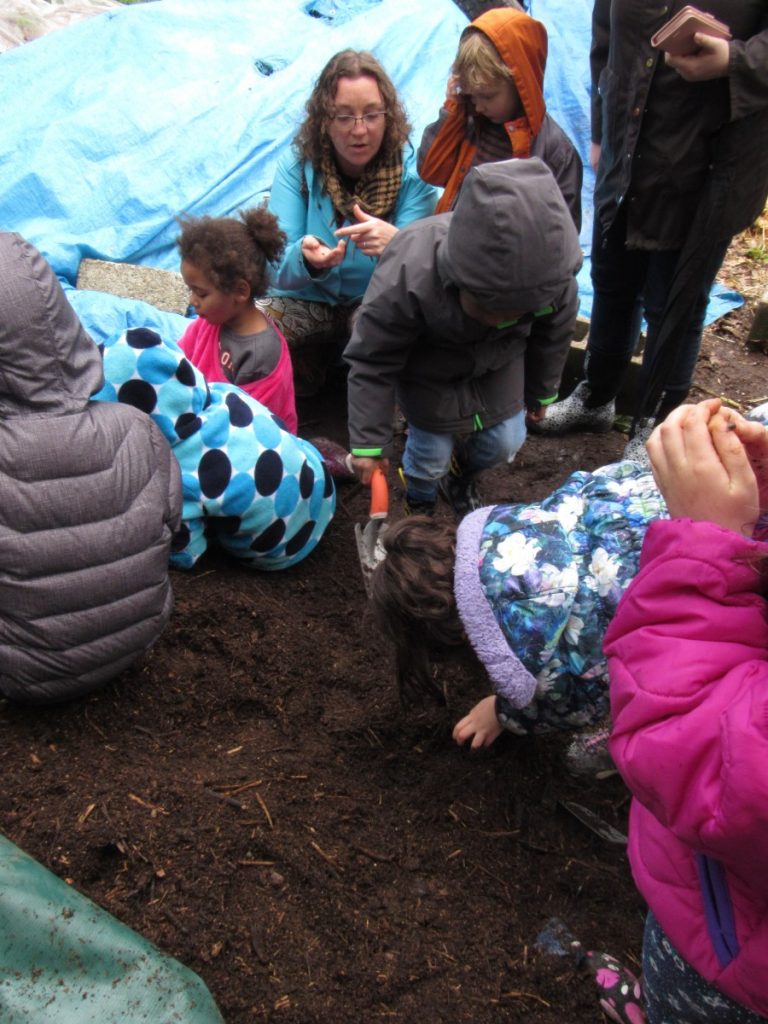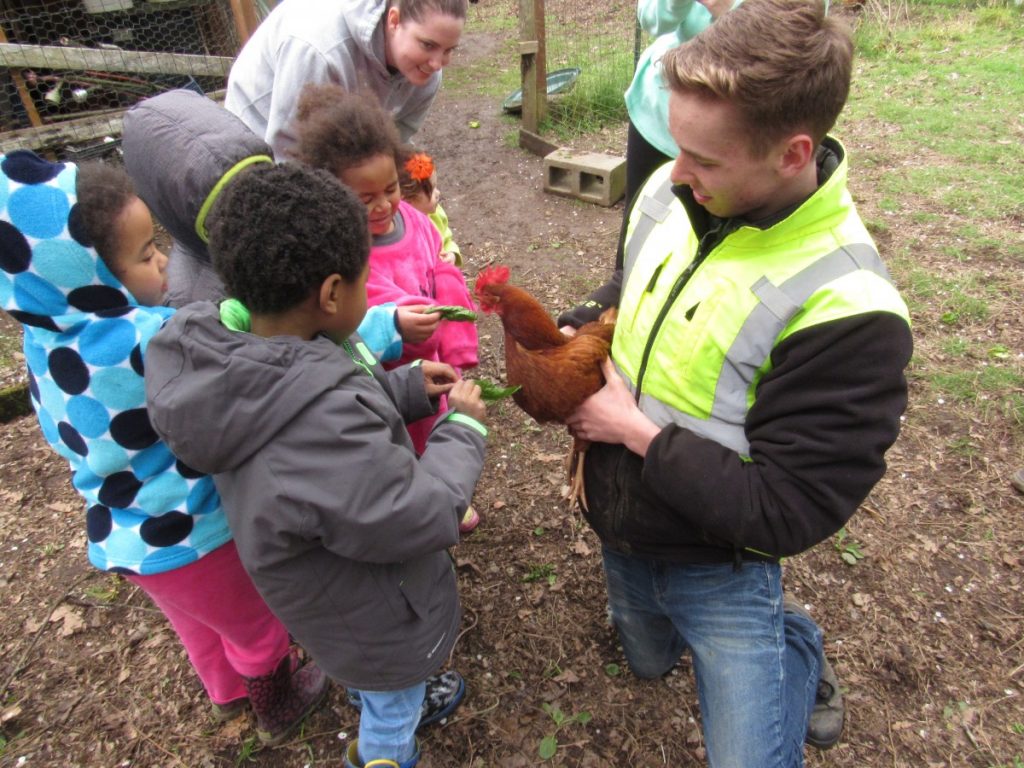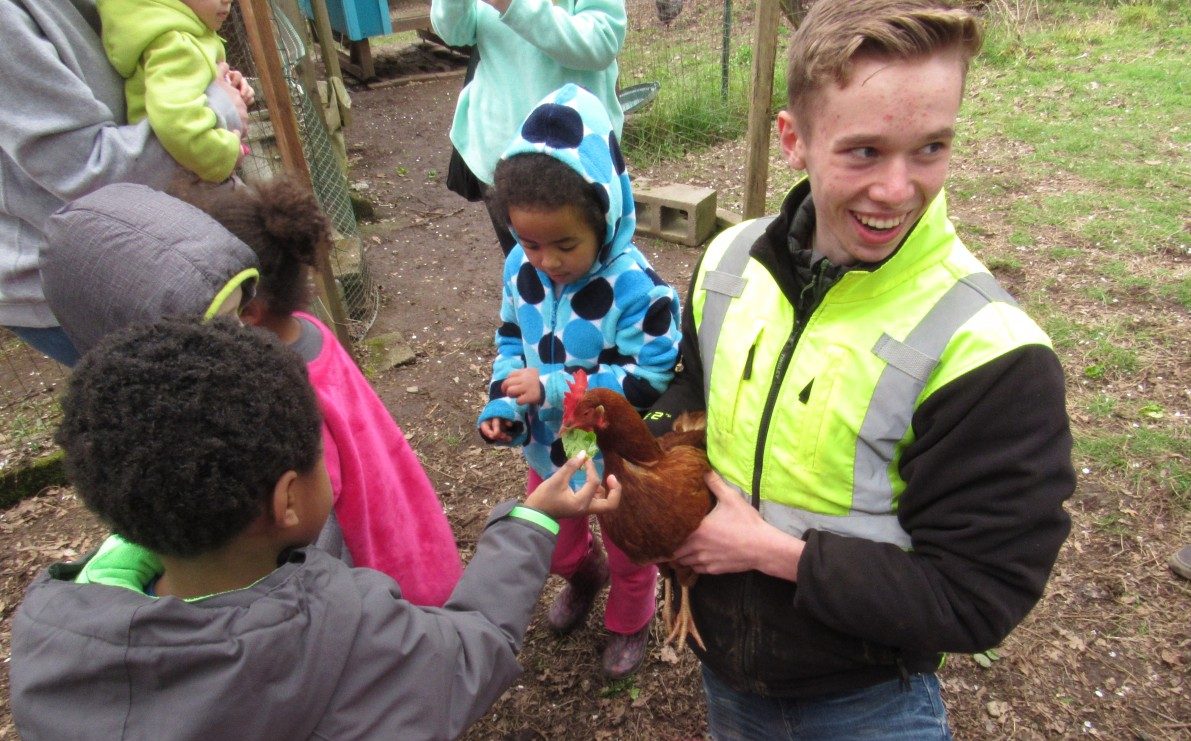Each spring, the GRuB school youth crew splits into three groups and spends there Thursdays and Fridays rotating through three aspects of GRuB’s community work. The first is the farm, where they join the farm manager and interns in completing whatever the days tasks are, learning agricultural practices in the process. The second rotation is with the Victory Garden Project. They assist the program in building backyard gardens in our community. (Last year I worked with the youth on some of these builds, and in my experience it is one of their favorites as they leave the build with a strong sense of accomplishment and practical skills for replicating the garden beds for their families.) The last rotation is with the Field Trip Program hosting preschool through middle school students at GRuB for experiential educational programming.
Over the last two weeks I have worked with one group of youth crew members on several occasions. We held two field trips during this time. Katherine and I spent a morning preparing the flow of the field trip and assigning roles for the students. They only had a few hours to prepare for their first field trip the following day. We introduced the program, spoke about how to work with younger youth, explained the structure of the following day and what each of their roles would be. We then went through and practiced each of these roles and offered positive and constructive feedback in the form of Alphas and Deltas as I’ve described in other posts.
The youth put up a strong resistance to practicing. Understandably, it is hard to pretend like you are speaking to second graders when you are surrounded by your peers. We attempted to emphasize how important practicing for public speaking is, and they put in the effort they were willing to in the moment, and that’s about all we can ask of them.
When the time came, and the first group arrived the crew stepped up well and delivered their roles with much more enthusiasm than I honestly expected after seeing them practice. It was wonderful to see each student in their workshops, sharing the knowledge they have with excitement. As a team, I think we struck a healthy balance of sharing the mic, filling in gaps, or stepping up when it seemed someone needed some support. We excelled at putting the kids’ needs first and encouraging them to share their ideas!
The second field trip was with a much younger crowd, mostly preschoolers. During this trip most of the students had the same roles, so they were able to integrate the feedback they’d been given and work on their presentation some more. As a whole, I think the second one went a lot smoother as we were all more comfortable with the process and knew (sort of) what to expect.

A challenge many of the students and I had, was adopting our language to suit the audience. Since we were dealing with a much younger age group, their level of comprehension and vocabulary was different than the 2nd and 3rd graders the week prior. In our reflection circle at the end, that was something we realized we hadn’t really prepared for, or thought of going into it. I noticed during the tour that I needed to be more mindful of what words I was using. I found that if we used words they couldn’t understand they stopped paying attention, and started climbing on things.
This is something I plan on addressing at my next meeting with Katherine and Karen, as we continue our work on the curriculum. We plan on making separate workshops for differing age groups. I will also add it into the “Working with youth” handout we have, that we must be mindful of our word choice depending on the audience.
The take aways I have from this first rotation are just that- mindfulness of my communication, and not just with the field trip visitors, but also with the youth crew. As we ask them to practice and try on the teaching role they may not be comfortable with, tone of voice and word choice can make all the difference in how the message is received. Noticing the intent of my message and its impact on the students over the last weeks has shown me the significance of that practice.


Be First to Comment